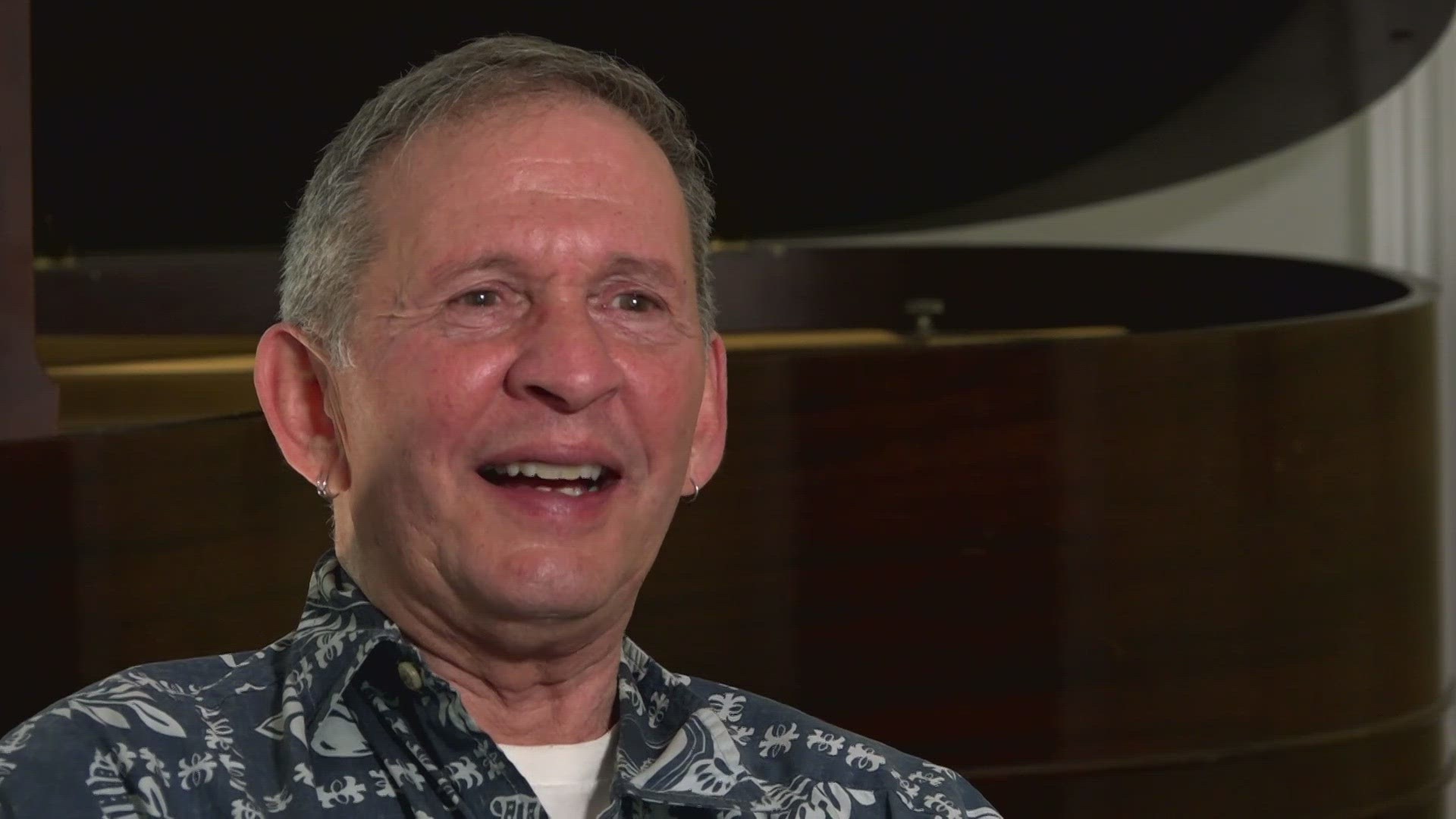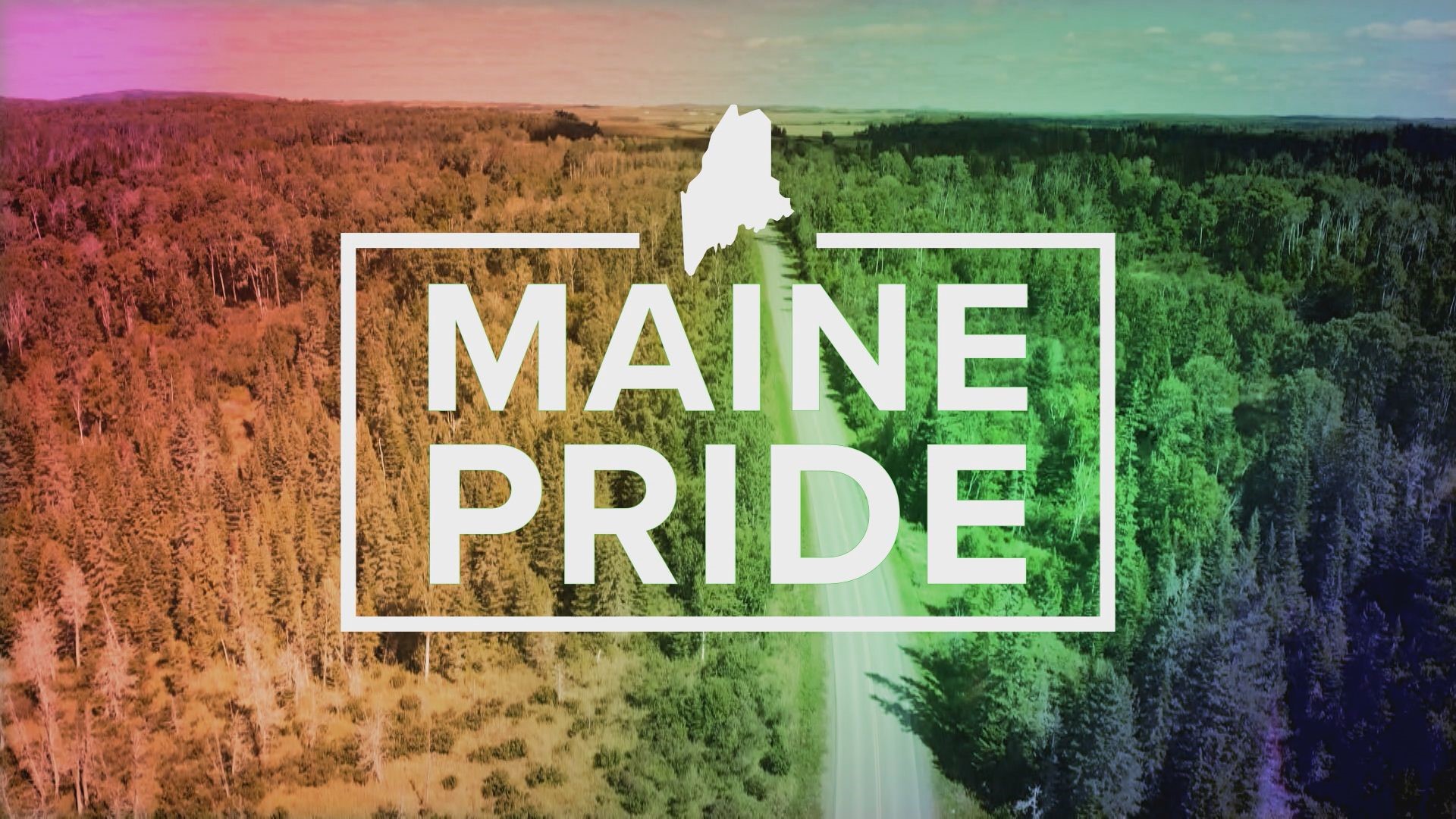PORTLAND, Maine — Dick Harrison's journey has an untraditional path that brought him to The County.
"I didn't come out until I was 27," he said. "I was living in Boston and then I moved to Van Buren. That was a culture shock."
As a gay man in a small rural town along the Canadian border, being out was not always easy.
"I would joke that I went back into the closet, but my door had louvers on it," Harrison said.
He knew there had to be others who felt the same way as he did, so he created the state's first LGBTQ+ organization Northern Lambda Nord in 1980. The group brought people together for social gatherings from small communities across the state and even over the border.
It did not take long to find they needed a way to better connect, leading them to create Maine's only gay-lesbian phone line.
"It was important for people living there at the time who just felt isolated. And if they found out that the group was around, they could go to a meeting, they could call the phone line, they could get support," Harrison said.
The original answering machine from that line is now a piece of history in the state's largest LGBTQ+ collection at the University of Southern Maine.
"They raised the money both to have a phone line and create an answering machine to allow people to connect, to get in touch with them, to ask them questions, to just have somebody else to talk to," Susie Bock, the coordinator of the collection, said.
Just years after it started, the AIDS crisis hit the state. The hotline quickly became a lifeline.
"It then became the AIDS hotline for the state," Bock said. "This wasn't a group in Portland who was setting up the AIDS hotline for the state, this social group up in Caribou, up in northern Maine, and I think that's a remarkable fact."
AIDS started to take hold of the gay community across the country and in rural Maine. With little information coming from the federal government, it was up to grassroots organizations to take the lead.
"One of the first deaths in Maine was a man from Caribou," Harrison said. "It was scary at first, because you didn't know what was going on."
David Simpson knows that fear all too well.
"I've known hundreds of people that have died," he said.
Simpson cared for many people in their final days at the Frannie Peabody House in Portland. The house was started by 80-year-old Frances Peabody who lost her grandson to AIDS.
"Many people didn't have family," Simpson said. "It gave them a place to come and pass."
He eventually contracted the virus himself, but survived. He is now living undetectable.
"I was afraid because back then, you were going to die. Back then, it was a death sentence," Simpson said.
Frannie Peabody is now operating as Maine's prominent HIV-Aids Organization. According to the CDC, there are still around 1,700 people living with HIV.
"The state of Maine has one of the highest viral load suppression rates of any state in the country," Katie Rutherford, the executive director of the Frannie Peabody Center, said.
Rutherford said that is thanks to decades of work and progress across the state, ensuring care is available.
Now a test for HIV can be taken with simple kits that are mailed to homes. It is an easier and less intrusive way for people to get the help they need.
The organization is no longer focused on hospice care and instead provides housing support, access to health care, and mental health resources.
"And because of that access people are living healthy with HIV, they have undetectable viral loads, so they can't transmit the virus," Rutherford said. "That's really the goal."
As for Dick Harrison, he looks back on his role helping to provide support to the LGBTQ+ with pride.
Over the years he and so many others saved lives and changed how gay people are perceived.
"Once people realize that they know gay people, it makes a difference. You put a face in front of it. It's not just some abstract idea. It's not something you see on TV. It's your neighbors and your relatives," Harrison said.
You can catch Maine Pride stories on NEWS CENTER Maine at 6 p.m. every Thursday in June. You can also watch our full special report streaming now on NEWS CENTER Maine+.


